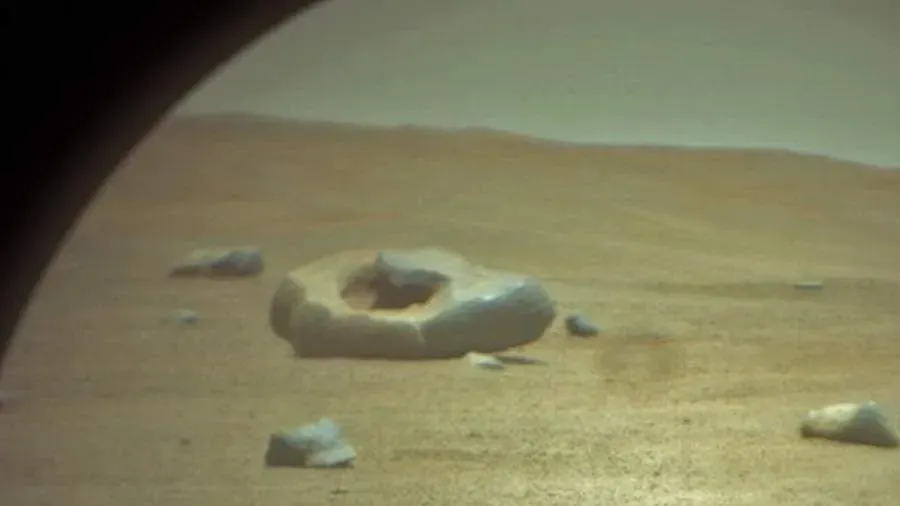Data from the Perseverance rover proved the presence of a lake on Mars in the past
Kyiv • UNN
Data obtained by NASA's Perseverance rover has confirmed that there was once a lake in the Jezero crater on Mars. Sedimentary deposits analyzed by the rover's radar indicate the previous presence of a lake that could support microbial life.

The site of the crater Jezero on Mars used to be a lake in the past. This conclusion follows from the data collected on the Red Planet by the Perseverance rover of the National Aeronautics and Space Administration (NASA). The results of the analysis of the data were reported by Reuters on Saturday, January 27, UNN reports.
Details
The results of georadar observations conducted by the robotic rover confirm previous orbital images and other data that allow scientists to suggest that some parts of Mars were once covered with water and may have contained microbial life
The study was conducted by a group from the University of California, Los Angeles (UCLA) and the University of Oslo, and its results can be found in the scientific journal Science Advances.
The study analyzed data collected by the rover back in 2022 using the RIMFAX radar. This technology made it possible to see the underground layers at a depth of up to 20 meters. This was enough for scientists to notice soil deposits typical of areas where there used to be water bodies.

The researchers' assumption is that there was a lake at the site of the Ezero crater, and even a Martian river delta was found nearby.
At the same time, sedimentary rocks are adjacent to rocks that are clearly of volcanic origin. Scientists have suggested that the area has a complex geological history, and in different periods of Mars' existence, the landscape changed here, and volcanoes were replaced by lakes.
We landed on volcanic rocks. The real news is that now we've entered the delta and we can see traces of these lake sediments, which is one of the main reasons we came to this place. So in that respect, it's a happy story
Context
On February 18, 2021, the Perseverance rover landed in the Jezero crater on Mars. According to scientists, the landing site could have been a lake before. There, the spacecraft collected information about the oldest layers of the crater, rock features, and other geological characteristics.